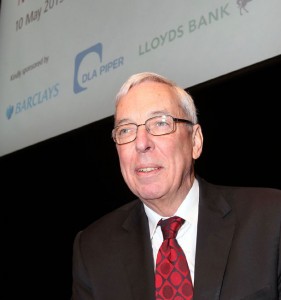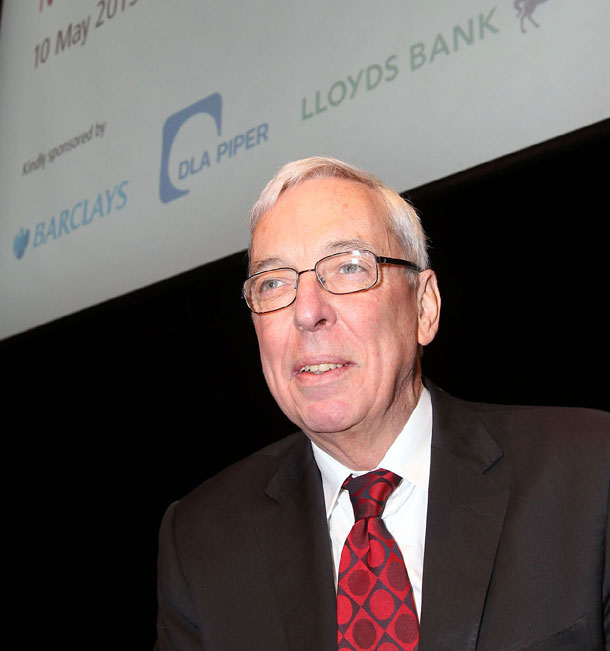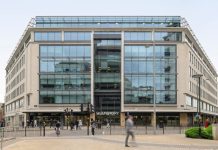 The Midlands has an opportunity to prosper on the back of a resurgent manufacturing sector, Dennis Turner, former UK chief economist at HSBC, has predicted.
The Midlands has an opportunity to prosper on the back of a resurgent manufacturing sector, Dennis Turner, former UK chief economist at HSBC, has predicted.
Speaking to the Investment Property Forum Midlands Region Annual Lunch, held at the International Convention Centre in Birmingham, he suggested manufacturing was likely to be “the basis for growth for the next 20 years”.
He told a more than 400-strong property audience that given “legacy issues” from the financial crisis, plus problems in Europe, the UK economy would need to be more globally focused and export orientated. And that tended to favour manufacturing more than financial services.
Mr Turner said: “Manufacturing is the key and we are still good at it. The sector is not what it was but what we have left – automotive, aerospace and pharmaceuticals – remains strong. We just need a few more of them.
“George Osborne understands how to provide the right environment for manufacturing to prosper. So the West Midlands should have a decent future so long as the skills have not all disappeared and too many such people haven’t ended up in supermarkets and call centres.”
Backing the Government’s apprenticeship push, he said it was important that new jobs went to locals rather than “importing skills from eastern Europe”.
In a wide ranging assessment of the economy, Mr Turner said we were definitely seeing a recovery albeit it was fragile and there had been “a few more bumps on the road” this time. The question was – given low interest rates and £375 billion of quantitative easing pumped in by the Bank of England – why weren’t things improving quicker?
One factor was that much of the country’s growth was dependent on consumer spending yet consumers were worried about unemployment and personal debt while inflation was sucking money out of them. So they were “staying at home”.
The second major factor was public sector debt – now amounting to 80 per cent of annual GDP. And we were still spending beyond our means. “This is not austerity – we are merely tinkering. There is worse to come after the General Election.”
Our dependence on Europe and the US to take our exports was a third issue – we needed to find a new customer base among the world’s emerging markets.
But there were things going for us. The UK was still regarded as well run and relatively stable. Inflation was coming down. And there would be no increase in interest rates this year or next. Companies were in good shape and sitting on an £800 billion cash pile – not spending it though, a logjam which needed to be broken.
Somehow we had to get back to 2.5 per cent sustainable growth from 0.5 per cent last year and perhaps 1-1.5 per cent this year. That should be the case by late 2014, he forecast.
“So it is going to be more about exports, more about manufacturing and less about financial services.”
And, he cautioned, “less about property and construction too albeit there will be a better market for both”.
IPF Midlands Region chairman Tim Hurdiss highlighted the importance of the Midlands economy – gross value added of £175 billion, representing 13 per cent of the UK total, greater than Wales and Scotland combined.
The recent purchase of a 50 per cent stake in the Bullring for £307 million by Hammerson in a joint venture with Canada Pension Plan Investment Board, along with the acquisition of Edmund House by the German investor Patrizia, showed both investor confidence in the Midlands and how overseas investors were willing to invest in Birmingham.
And he challenged the audience: “In these difficult economic times we all need to show new and innovative ways of working to ensure that, despite increased competition and cost pressures, the Midlands has a large and active professional, legal and financial services sector able to compete with other parts of the UK.”





















